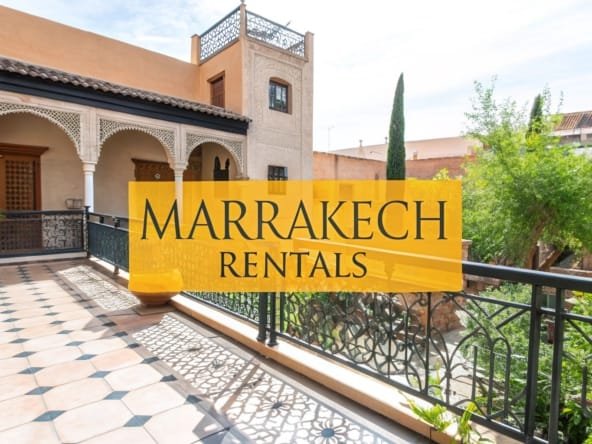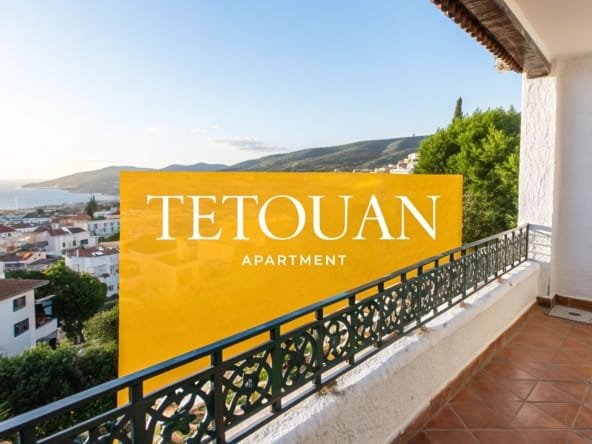Why Smart Investors Are Flocking to Morocco's Real Estate
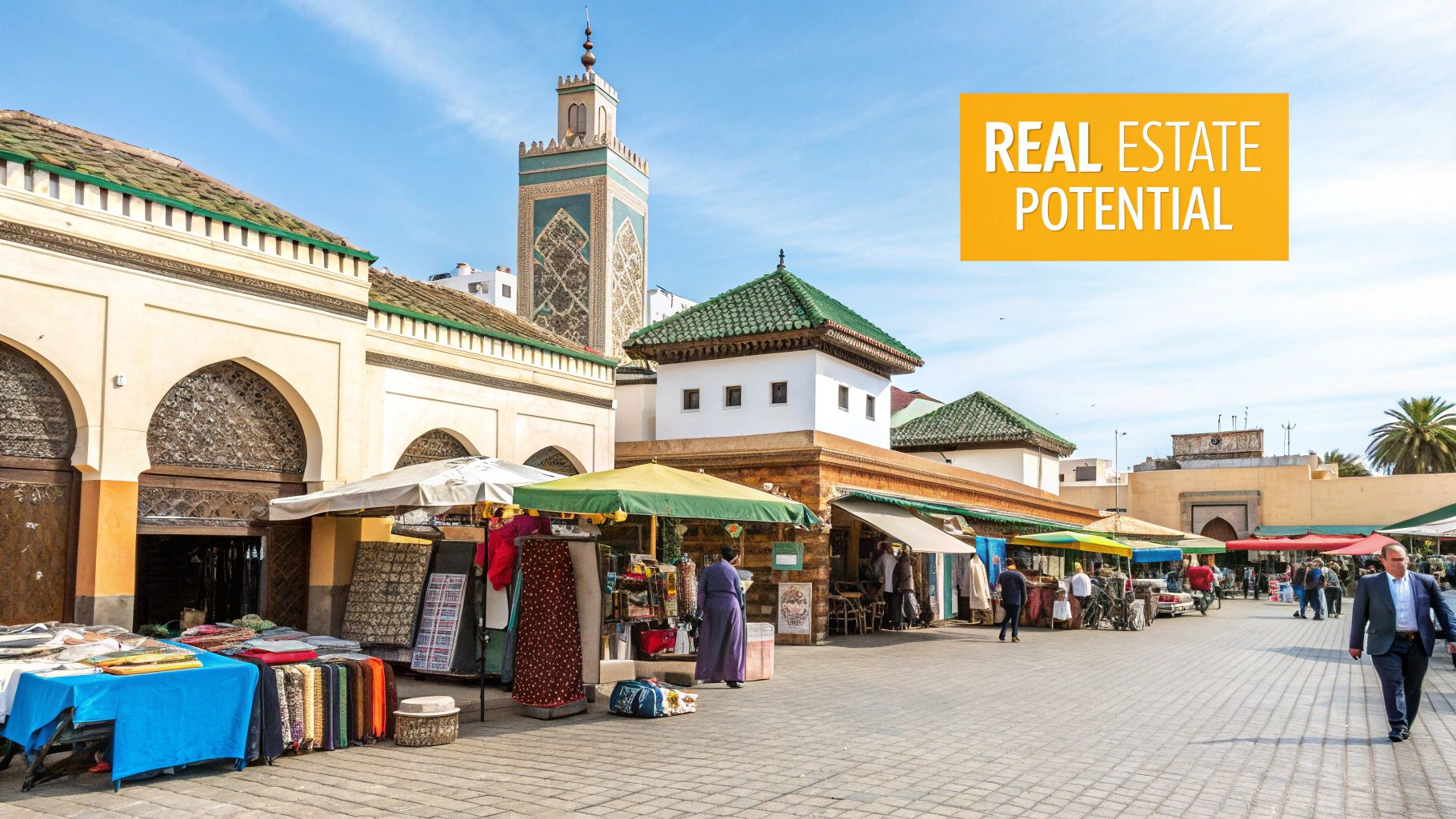
Morocco's real estate market is currently experiencing a surge in activity. Beyond the country's beautiful landscapes and rich culture, astute investors are drawn to the unique combination of economic stability and growth potential that distinguishes Morocco within North Africa. This makes real estate investment an increasingly compelling opportunity.
Economic Stability and Growth
Morocco enjoys a stable political landscape and a steadily expanding economy. This foundation provides security for long-term investments, mitigating the risks often associated with political volatility or economic downturns. The Kingdom has strategically diversified its economy, reducing its dependence on volatile sectors and enhancing its overall resilience. This stability positions Morocco as a secure option for investors seeking reliable returns in a region sometimes characterized by unpredictability.
Morocco's strategic location, at the intersection of Europe and Africa, offers unparalleled access to both markets, creating distinct investment advantages. This facilitates trade and strengthens Morocco's appeal as a business hub, further bolstering the real estate sector. Such stability attracts foreign investment and contributes significantly to market growth.
In fact, Morocco's real estate market has witnessed substantial expansion, with projections indicating a market value of US$1.71 trillion by 2025. The Residential Real Estate segment is poised to spearhead this growth, driven by increasing demand for modern, well-appointed properties. This impressive growth trajectory is fueled by economic factors, evolving consumer preferences, and supportive government initiatives that benefit both developers and buyers. For a deeper dive into these statistics, visit: Statista.
Government Initiatives and Foreign Investment
The Moroccan government has implemented strategic policies designed to attract foreign investment. These policies include streamlined procedures for property acquisition and attractive incentives for international buyers. Such initiatives cultivate a welcoming environment for foreign capital, simplifying market entry for investors.
Furthermore, the government's emphasis on infrastructure development, including enhancements to transportation networks and the promotion of sustainable building practices, adds to the allure of Moroccan real estate. This proactive approach not only benefits investors but also contributes to the country's overall development and modernization.
Shifting Investment Landscapes
A growing number of investors are diverting funds from traditional markets towards Morocco, seeking higher yields and portfolio diversification. This shift is driven by a recognition of Morocco's untapped potential and its comparatively competitive pricing when contrasted with more established markets. While established markets might offer familiarity, they often come with higher entry costs and limited potential for substantial growth.
Morocco, conversely, presents an opportunity to participate in a burgeoning market with the potential for higher returns. Investing in Moroccan real estate allows for portfolio diversification, mitigating overall risk and potentially enhancing returns. This trend underscores the growing awareness of Morocco's investment appeal and its capacity to deliver lucrative opportunities. This influx of capital further fuels market growth, creating a positive feedback loop for investors. This dynamic market is ripe with opportunities for those who understand the nuances of Moroccan real estate.
Opportunities and Challenges
While Morocco's real estate market presents abundant opportunities, it's essential to approach investments with a thorough understanding of both the potential rewards and inherent challenges. Diligent due diligence, local market knowledge, and a well-defined investment strategy are critical for success. Understanding the specific legal and regulatory framework, cultural nuances, and regional market variations is essential for maximizing returns and mitigating potential risks.
This informed approach empowers investors to navigate the market effectively, make sound decisions, and capitalize on the significant opportunities presented by Morocco's thriving real estate sector. This approach ultimately ensures sustainable growth and long-term success in this dynamic market.
Where to Invest in Morocco Real Estate for Maximum Returns
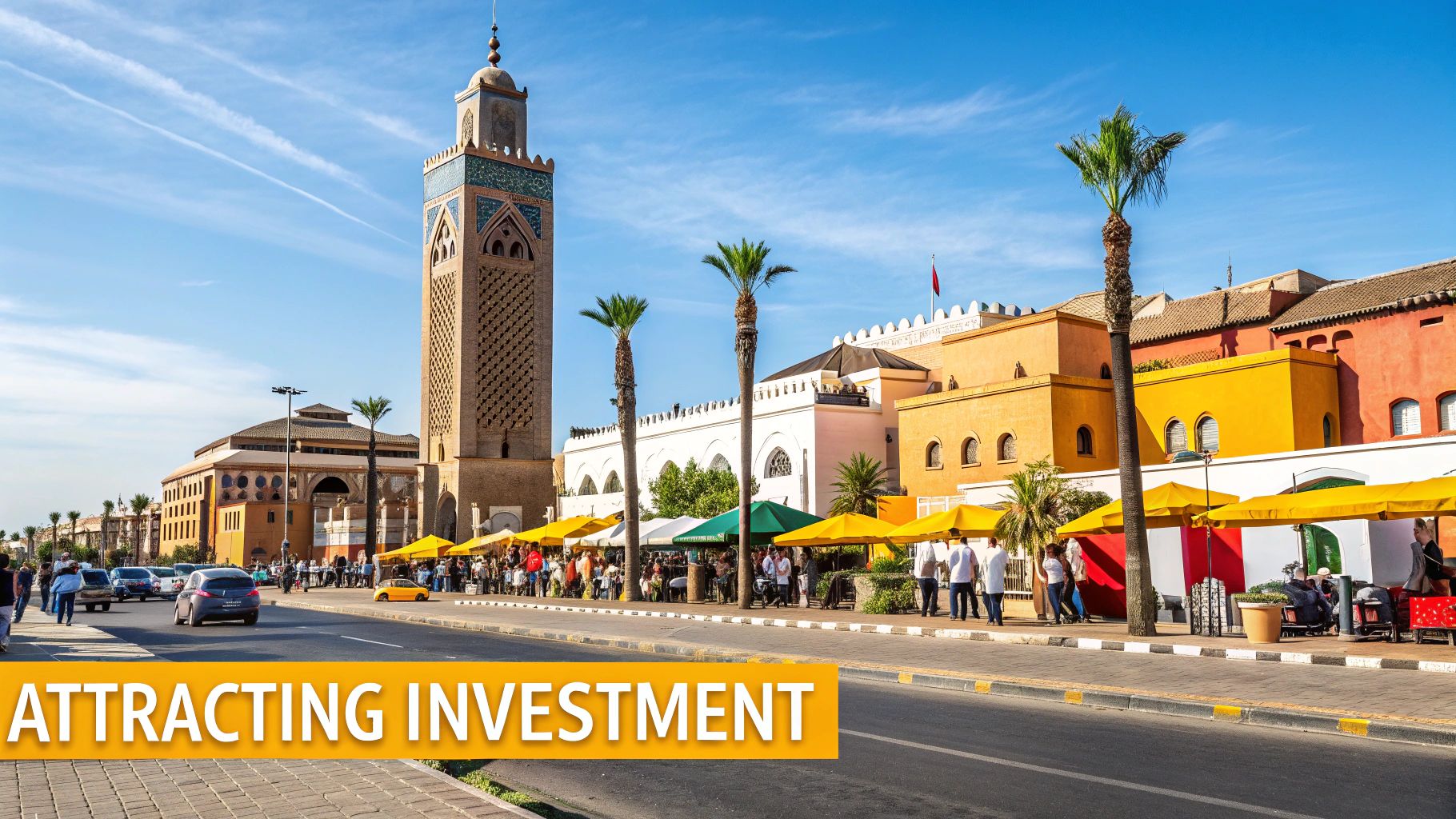
Morocco's real estate market offers diverse investment opportunities, each with varying potential. From Casablanca's bustling urban center to Marrakech's historic allure and emerging hubs like Tangier, understanding regional nuances is crucial for maximizing returns. This guide navigates Morocco's property landscape to help you identify high-growth areas and potentially overvalued properties.
Major Cities: A Comparative Look
Morocco's major cities offer distinct investment landscapes. Casablanca, the economic powerhouse, focuses on commercial and high-end residential properties. Marrakech, a global tourist magnet, presents opportunities in luxury villas, traditional riads, and short-term rentals. Tangier, with its strategic location and expanding port, attracts investors seeking both residential and commercial ventures. Rabat, the administrative capital, provides stability driven by government activity and consistent housing demand.
To further explore diverse property options, consider reviewing various property types available in Morocco: Exploring various property types in Morocco.
Coastal vs. Inland Investments
Coastal areas like Tangier and Agadir thrive on tourism and international trade, creating robust demand for vacation homes and rental properties. Inland cities like Marrakech and Fes, rich in cultural heritage, attract those seeking immersive experiences, fostering opportunities in traditional properties and the expanding hospitality sector. This regional distinction shapes investment strategies.
Rental Yields and Growth Potential
Rental yield potential in Morocco fluctuates between tourist hotspots and residential zones. Tourist destinations often offer higher short-term rental yields, while residential areas provide steady long-term lease income. A Marrakech riad might command premium rates during peak season but experience lower occupancy during the off-season. Conversely, a Casablanca apartment in a residential neighborhood offers consistent year-round income. Understanding these dynamics is vital for aligning your investment strategy with income goals.
Morocco's housing market has shown varied performance recently. As of Q1 2024, gross rental yields ranged from 4.43% to 8.99%. While indicating a moderately strong rental market, property prices have remained relatively stable, with some cities experiencing minor fluctuations. Casablanca, for example, experienced a 0.1% year-on-year decline in residential property prices. However, Marrakech and Tangier witnessed increases of 3% and 3.2%, respectively. Growth in the mortgage market, while present, was limited to 1.3% year-over-year as of May 2024. For more detailed market statistics, see: Global Property Guide.
The following table provides a comparison of key real estate investment metrics across major Moroccan cities. This data can help investors identify optimal locations aligned with their specific investment objectives.
Major Moroccan Cities: Real Estate Investment Comparison
| City | Average Price (MAD/m²) | Annual Price Growth | Rental Yield | Market Liquidity | Foreign Buyer Popularity |
|---|---|---|---|---|---|
| Casablanca | (Data unavailable – requires research) | -0.1% | (Data unavailable – requires research) | (Data unavailable – requires research) | (Data unavailable – requires research) |
| Marrakech | (Data unavailable – requires research) | 3% | (Data unavailable – requires research) | (Data unavailable – requires research) | (Data unavailable – requires research) |
| Tangier | (Data unavailable – requires research) | 3.2% | (Data unavailable – requires research) | (Data unavailable – requires research) | (Data unavailable – requires research) |
| Rabat | (Data unavailable – requires research) | (Data unavailable – requires research) | (Data unavailable – requires research) | (Data unavailable – requires research) | (Data unavailable – requires research) |
This table highlights the varying performance across key Moroccan cities. Further research is encouraged to obtain specific data points for each city regarding average prices, rental yields, market liquidity, and foreign buyer interest.
Emerging Trends and Infrastructure Development
Recognizing early signs of neighborhood revitalization and the influence of infrastructure projects is essential for astute real estate investment. New transportation links or urban renewal projects can significantly impact property values in previously undervalued areas. Similarly, gentrifying areas often experience rapid appreciation, presenting opportunities for early investors. Monitoring government infrastructure plans and noting shifts in neighborhood demographics offers valuable foresight into future growth.
Due Diligence and Local Expertise
Navigating Morocco's real estate market necessitates thorough due diligence and collaboration with local experts. Engaging a reputable real estate agent and legal advisor versed in local regulations and market dynamics is vital for risk mitigation. Their guidance on property valuations, legal procedures, and market trends ensures a secure investment process. Their expertise is invaluable for identifying promising opportunities and minimizing potential challenges. Partnering with experienced professionals is a cornerstone for maximizing returns and achieving investment objectives in Morocco's real estate market.
Mastering Morocco's Unique Real Estate Market Dynamics
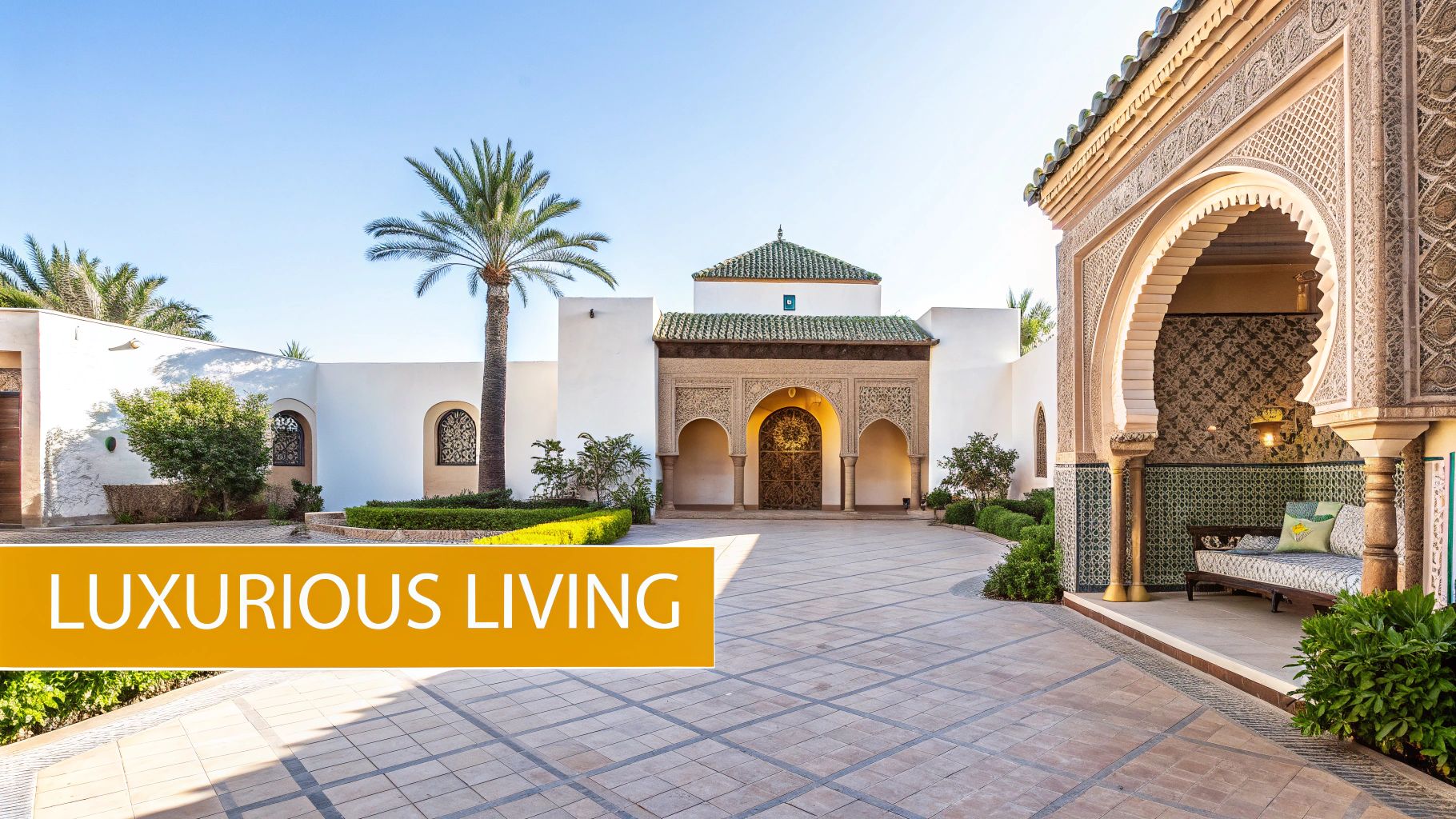
Understanding the dynamics of Morocco's real estate market is essential for successful investment. This involves a thorough analysis of key factors influencing the market. These include transaction patterns, price fluctuations, and the level of construction activity across diverse property segments. These segments encompass residential, commercial, and vacation properties. This comprehensive understanding is what separates seasoned investors from those less likely to achieve their desired returns.
Deciphering Market Trends
Analyzing current market trends is crucial for making informed investment decisions. This analysis includes examining transaction volumes, which provide valuable insights into buyer and seller activity. Additionally, tracking price movements across different property types is essential. For example, price trends for apartments in Casablanca may differ significantly from those of villas in Marrakech.
Monitoring construction activity is another important element of market analysis. This provides a forward-looking perspective on future supply and potential price pressures. By considering these data points, investors can gain a comprehensive understanding of market health and identify potential investment opportunities.
Furthermore, understanding the impact of urbanization and demographic shifts is vital. As cities grow and populations evolve, certain areas become more desirable. This, in turn, influences property values. For instance, migration from rural areas to urban centers can impact housing demand and drive price increases in specific locations. These demographic factors are important considerations when assessing long-term investment potential.
Recent real estate transactions in Morocco have shown a rebounding trend. Between 2023 and 2024, transactions increased by 7%. This growth was fueled partly by a surge in land transactions. In the second quarter of 2024, overall transactions rose by 12.1%, with land transactions experiencing a significant jump of 25.6%. This robust activity reflects strong demand, particularly in the land sector. Land prices increased by 1.2% annually in early 2024. Regional variations are also apparent, with Rabat and Casablanca experiencing price increases, while Marrakech saw slight declines. For a deeper dive into these trends, explore this resource: Morocco Real Estate Market Trends.
Identifying Emerging Opportunities
Different property types often perform differently depending on market conditions and investor preferences. For example, commercial properties might yield higher returns during periods of economic growth. Conversely, vacation rentals could be more lucrative during tourism booms. Identifying these emerging opportunities before they become mainstream provides a significant advantage. This requires analyzing market data, understanding investor behavior, and staying informed about economic forecasts.
Infrastructure and Investment Corridors
Infrastructure development plays a significant role in shaping real estate investment landscapes. New highways, transportation hubs, and utility projects can significantly increase property values in surrounding areas. These developments create new investment corridors, transforming formerly less desirable locations into high-potential zones. Recognizing these infrastructure-driven opportunities early is a key characteristic of successful real estate investors. Investors who understand the impact of infrastructure can strategically position themselves for substantial returns.
Timing Market Entry and Exit
Timing is crucial in real estate investing. Understanding market cycles, economic indicators, and local dynamics is essential for maximizing returns. A well-timed market entry can allow investors to take advantage of lower prices and higher growth potential. Similarly, a strategic exit can help capitalize on peak valuations.
Successfully navigating the market requires constant monitoring, adaptability, and a clear understanding of investment goals. This proactive approach allows investors to be well-positioned to capture the best possible returns in Morocco's dynamic property market.
Navigating Legal Complexities When You Invest in Morocco
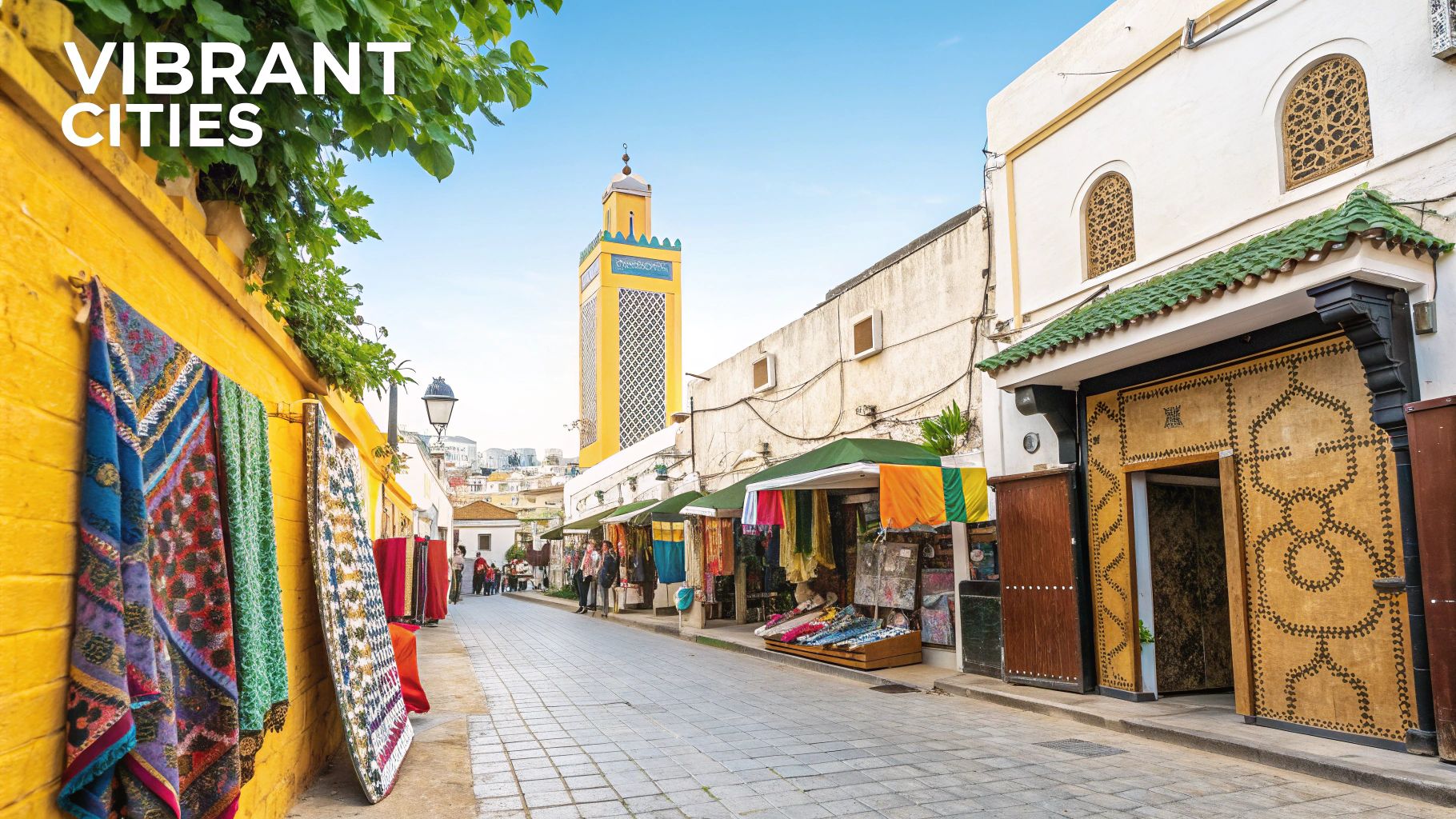
Investing in Moroccan real estate offers exciting prospects. However, understanding the legal landscape is essential for a successful investment. This section provides a practical guide to the legal aspects of buying property in Morocco, focusing on the key considerations for non-resident buyers. Knowing these nuances will help you make informed decisions and avoid potential problems.
The Role of the Notary: A Cornerstone of Moroccan Real Estate Transactions
The notary in Morocco plays a much more significant role than in some Western systems, going beyond simply witnessing signatures. Notaries are highly qualified legal professionals who ensure the transaction's legality and security.
They draft the sale agreement, verify property titles, and register the ownership transfer. This comprehensive involvement provides an added layer of security for both buyer and seller. Understanding the notary's central role is vital for foreign investors navigating the legal processes.
Essential Documentation: Ensuring a Smooth Transaction
Having the correct documentation is paramount when investing in Moroccan real estate. Gathering the necessary paperwork beforehand streamlines the purchase process and prevents delays.
To get you started, we've compiled a handy checklist of required documents:
Understanding these requirements upfront will significantly contribute to a smoother transaction.
| Document | Purpose | Obtaining Authority | Processing Time | Special Notes for Foreign Buyers |
|---|---|---|---|---|
| Passport | Identification and legal proceedings | Issuing country | N/A | Ensure validity throughout the purchase process |
| Proof of Funds | Demonstrate financial capacity | Bank or financial institution | Varies | May require certified translations |
| Property Title Deed | Confirms ownership and legal status | Moroccan Land Registry | Varies | Notary will verify authenticity |
| Sale Agreement | Outlines terms and conditions of the sale | Notary | Varies | Review carefully with legal counsel before signing |
This table summarizes the key documents and their importance, highlighting specific considerations for foreign buyers. Ensuring you have these documents prepared will expedite the purchasing process.
Common Pitfalls for Foreign Investors: Avoiding Costly Mistakes
Foreign investors can sometimes encounter unique challenges. One common issue is misunderstanding local regulations regarding property ownership. For example, restrictions may apply to purchasing agricultural land or properties in specific zones.
Language barriers can also complicate negotiations. Engaging a translator specialized in legal terminology is highly recommended. Being aware of these potential obstacles and taking proactive measures minimizes the risk of costly errors. You might be interested in exploring property statuses in Morocco further: Exploring property statuses in Morocco. This resource offers valuable insights into various property classifications.
Tax Implications and Inheritance Considerations: Planning for the Future
Understanding Morocco's tax laws related to property ownership is crucial. Consulting with a tax advisor can help you understand potential tax liabilities and available deductions. For instance, certain taxes apply upon purchase, sale, and annual property ownership.
Also, consider how Moroccan inheritance laws may affect your long-term plans. These laws can differ significantly from those in other countries and may influence how your property is distributed. Proper planning with legal experts ensures compliance and protects your investment.
Legal Structures for Protection: Maximizing Your Investment Security
Different legal structures are available for holding property in Morocco, each offering varying degrees of protection and tax implications. Purchasing in your own name provides direct ownership but might have higher tax implications.
Alternatively, establishing a Moroccan company to hold the property could offer tax advantages and potentially limit liability. Consulting with a legal expert is vital to determine the most suitable structure for your individual circumstances and investment goals.
Real-World Examples: Learning from Successful Investors
Learning from others' experiences provides valuable insights. Many successful investors have navigated the Moroccan market by working with local professionals, conducting thorough due diligence, and carefully planning their investment strategy.
Their experiences emphasize the importance of a proactive approach and expert guidance. By considering these factors, you can better understand the complexities of investing in Morocco and avoid common mistakes. This informed approach paves the way for maximizing your investment potential.
Proven Investment Strategies for Morocco Real Estate Success
Successfully navigating Morocco's real estate market requires a deep understanding of the country’s legal framework and a strategic approach tailored to its unique dynamics. This section explores proven investment strategies that go beyond simply buying and holding, helping you achieve real estate success in Morocco. We'll examine diverse investment approaches, providing valuable insights for maximizing your returns.
High-Yield Urban Apartments: Targeting the Rental Market
Investing in urban apartments, especially in thriving cities like Casablanca and Rabat, offers a compelling opportunity to tap into Morocco's expanding rental market. The ongoing trend of urbanization fuels demand for rental properties, creating a consistent income stream for investors. Thorough due diligence is essential. Factors like location, amenities, and effective property management significantly influence the profitability of these investments. For instance, a well-maintained apartment conveniently located near public transportation and desirable amenities is more likely to attract and retain tenants, leading to higher rental income.
Restoring Riads: Capitalizing on Cultural Heritage
Marrakech and Fes, celebrated for their rich cultural heritage, present a unique investment avenue through the restoration of traditional riads. These beautiful courtyard houses attract local and international tourists seeking authentic Moroccan experiences. Transforming a restored riad into a boutique hotel or a guesthouse can generate substantial returns, especially within Morocco's thriving tourism sector. However, riad restoration projects demand meticulous planning and execution, including careful navigation of local regulations and skillful management of the renovation process. This strategy often appeals to investors interested in merging cultural preservation with financial gain.
Emerging Commercial Opportunities: Riding the Wave of Economic Growth
Morocco’s consistent economic growth makes a strong case for investing in emerging commercial opportunities. As the economy expands, so does the demand for office spaces, retail outlets, and industrial properties. This growth creates opportunities for investors to capitalize on the expanding market. Investing in commercial real estate in developing urban areas, for example, can yield substantial returns as businesses grow and require more space. This approach suits investors seeking long-term growth aligned with Morocco's economic trajectory.
Morocco-Specific Metrics and Calculations: Going Beyond Western Formulas
Evaluating properties in Morocco requires adapting Western investment formulas to the local context. Factors such as local market dynamics, cultural influences, and specific regulatory nuances significantly impact property valuations. For instance, the proximity to a local mosque or market can significantly influence property value in Morocco, a factor not typically considered in Western markets. Therefore, consulting local experts familiar with the Moroccan market is essential for accurate property assessments and informed investment decisions.
Combining Short-Term Rentals with Personal Use: Optimizing Enjoyment and Returns
Many investors are strategically combining short-term vacation rentals with personal use to optimize both enjoyment and financial returns. This involves renting out a property during peak tourist seasons and enjoying it personally during the off-season. Owning a coastal villa, for example, and renting it during the summer months can offset ownership costs while allowing the owner to enjoy the property during quieter periods. This strategy provides a balance between leisure and investment, making it appealing for those seeking both personal enjoyment and financial gains.
Emerging Opportunities: Student Housing, Eco-Tourism, and Mixed-Use Developments
Beyond traditional investment strategies, emerging opportunities in student housing, eco-tourism, and mixed-use developments are gaining traction. The increasing number of students pursuing higher education fuels demand for purpose-built student accommodations. The rising popularity of eco-tourism is creating investment opportunities in sustainable and environmentally conscious properties. Mixed-use developments, combining residential, commercial, and leisure spaces, cater to evolving urban lifestyles and offer diverse income streams.
Capital Requirements, Management Considerations, and Risk Profiles
Each investment strategy has distinct capital requirements, management considerations, and risk profiles. Investing in high-yield apartments may require less initial capital than restoring a riad. Managing a rental property involves ongoing maintenance and tenant management, while eco-tourism projects might necessitate adhering to specific environmental regulations. Understanding these nuances is crucial for aligning your investment approach with your financial goals and risk tolerance. For available properties and expert guidance, explore Rich Lion Properties. This resource offers valuable information on the Moroccan real estate market and current investment opportunities.
By carefully considering these factors and aligning them with your investment objectives, you can navigate the Moroccan real estate market effectively and maximize your potential for significant returns. This strategic approach enables investors to capture the most promising opportunities and minimize the inherent risks associated with property investment.
Financing Your Morocco Real Estate Investment Wisely
Smart financing is essential for maximizing returns on any real estate investment, and Morocco is no exception. Securing financing in Morocco, especially as a foreign investor, presents unique challenges and opportunities compared to Western markets. This guide will navigate you through the intricacies of financing your Moroccan real estate investment, from traditional bank loans to alternative options, and address crucial currency risk management.
Navigating Local Mortgage Options for Foreigners
Obtaining a mortgage in Morocco as a foreigner is achievable, but it's often more complex than in many other countries. Major Moroccan banks offer mortgages to non-residents, but the terms, interest rates, and qualification requirements can differ significantly.
- Interest Rates: Interest rates in Morocco are generally higher than in many Western countries, fluctuating based on market conditions and the borrower's profile.
- Loan-to-Value (LTV) Ratio: Anticipate a lower LTV ratio, typically around 60-70%, requiring a more substantial down payment.
- Qualification Requirements: Banks thoroughly examine applicants' financial stability, demanding extensive documentation of income, assets, and credit history.
Thorough research and comparison shopping are essential. Working with a local financial advisor, such as those available through Rich Lion Properties, can significantly streamline the process and help secure the best possible terms.
Exploring Alternative Financing Solutions
If a traditional mortgage isn't suitable, several alternative financing options exist:
- International Funding: Securing financing through a bank in your home country is a possibility. However, this approach often involves complex international transactions and currency exchange considerations.
- Structured Partnerships: Partnering with local investors can provide access to capital and invaluable local market knowledge. This strategy can be particularly effective for larger projects.
- Seller Financing: In some situations, sellers may offer financing directly to the buyer, offering flexibility and potentially faster transaction times.
Exploring these alternatives broadens your financing options and allows for a tailored approach to your specific investment goals.
Managing Currency Exchange Risks: Protecting Your Investment
Managing currency risk is crucial when investing in Moroccan real estate as a foreigner. Fluctuations between the Moroccan Dirham (MAD) and your home currency can significantly affect your returns.
- Forward Contracts: These contracts lock in an exchange rate for a future date, providing certainty for your transactions.
- Currency Options: Currency options grant the right, but not the obligation, to exchange currency at a pre-agreed rate, offering flexibility and mitigating potential losses.
These tools can help safeguard your investment from currency volatility and ensure more predictable returns.
Leverage and Returns: Understanding the Impact
Leverage, using borrowed funds to amplify investment returns, can be a powerful tool, but it also magnifies risk. In Morocco's current market, carefully analyze leverage's effect on your potential returns.
- Scenario Analysis: Model different scenarios, considering various interest rates and property price fluctuations, to assess leverage's impact.
- Risk Tolerance: Honestly evaluate your comfort level with risk. Higher leverage can amplify both gains and losses.
Understanding the dynamics of leverage allows for informed decisions and strategic investment optimization based on your individual risk profile.
Tax Efficiency: Structuring Your Investment Wisely
Structuring your investment with tax efficiency in mind can significantly impact your overall returns.
- Consult a Tax Advisor: Seek professional advice to understand the tax implications in both Morocco and your home country. A tax advisor can help identify strategies to minimize tax liabilities.
- Legal Structures: Different ownership structures, such as direct ownership or ownership through a company, offer varying tax advantages. Choosing the right structure is crucial.
Strategic navigation of these tax considerations enhances investment returns. Consulting resources like Rich Lion Properties can provide further insights into market dynamics and investment strategies. By carefully considering these financing strategies, you can effectively navigate the Moroccan real estate market and position yourself for success. Thorough planning and informed decisions are essential for maximizing returns and minimizing risks in this dynamic market.
Your Step-by-Step Plan to Invest in Morocco Real Estate
Transforming your dream of owning Moroccan real estate into a tangible asset requires meticulous planning and execution. This guide outlines the essential steps, from defining your goals to managing your property and eventually selling it. Each stage plays a vital role in ensuring a successful and rewarding investment experience.
Defining Your Investment Objectives and Budget
Before entering the Moroccan real estate market, it's crucial to have a clear understanding of your objectives. Are you looking for a vacation home, a long-term rental property, or a combination of both?
Defining your objectives will clarify your investment strategy and guide your property search. Once you've established your goals, create a realistic budget. This budget should encompass all costs, including the purchase price, associated fees, potential renovations, and ongoing maintenance expenses. A comprehensive budget helps avoid unexpected financial burdens and keeps your investment on track.
Building Your Local Team
Assembling a reliable local team is fundamental to successful real estate investment in Morocco. This team should consist of the following key members:
- Real Estate Agent: An experienced agent with local market knowledge can help you find properties that align with your investment goals.
- Attorney: Legal counsel specializing in Moroccan real estate law is vital for navigating the legal intricacies and ensuring a secure transaction.
- Property Manager (if applicable): If you intend to rent out your property, a dependable property manager can handle tenant interactions, maintenance, and other logistical matters.
A strong local team provides invaluable guidance and protects your interests throughout the investment process.
Due Diligence: A Critical Step
Due diligence in Morocco involves specific procedures that may differ from those in other countries. Title verification, for instance, requires a thorough review of property documents and confirmation of ownership through the Moroccan Land Registry. This process is essential for preventing legal disputes and ensuring a secure investment. Your legal counsel’s involvement in this stage is paramount for a comprehensive title verification.
Negotiation and Purchase Agreement
Negotiating in Morocco often involves cultural sensitivities that should be acknowledged. Your local real estate agent can offer valuable insights into local customs and negotiation practices.
Once a price is agreed upon, a formal purchase agreement is prepared by the notary. This legally binding document details the terms and conditions of the sale. Carefully review this document with your attorney before signing to ensure it safeguards your interests.
Timeline and Checkpoints
The timeline from property identification to closing can vary. Understanding the key checkpoints helps manage expectations and avoids costly errors. These checkpoints typically include:
- Initial Offer and Negotiation: This stage involves submitting an offer and negotiating the purchase price and other terms.
- Due Diligence and Title Verification: A comprehensive investigation of the property's legal status and ownership is conducted.
- Signing the Purchase Agreement: The formal agreement outlining the terms of the sale is signed by both parties.
- Funds Transfer and Registration: The purchase funds are transferred, and the ownership is officially registered with the Moroccan authorities.
Careful attention at each checkpoint ensures a smooth and legally sound transaction.
Property Management and Exit Strategy
Effective property management is vital for maximizing your returns. This encompasses regular maintenance, efficient tenant management, and adherence to local regulations. Develop a clear exit strategy in advance. This strategy should outline when and how you plan to sell your property. A well-defined exit strategy enables you to capitalize on market conditions and achieve your investment objectives.
Invest in your future with Rich Lion Properties. Our experienced team provides personalized guidance throughout your entire investment journey, from property selection to ongoing management. We handle the complexities of the Moroccan real estate market for you, ensuring a secure and profitable experience. Begin your Moroccan real estate journey today. Discover Morocco's finest properties with Rich Lion Properties.

